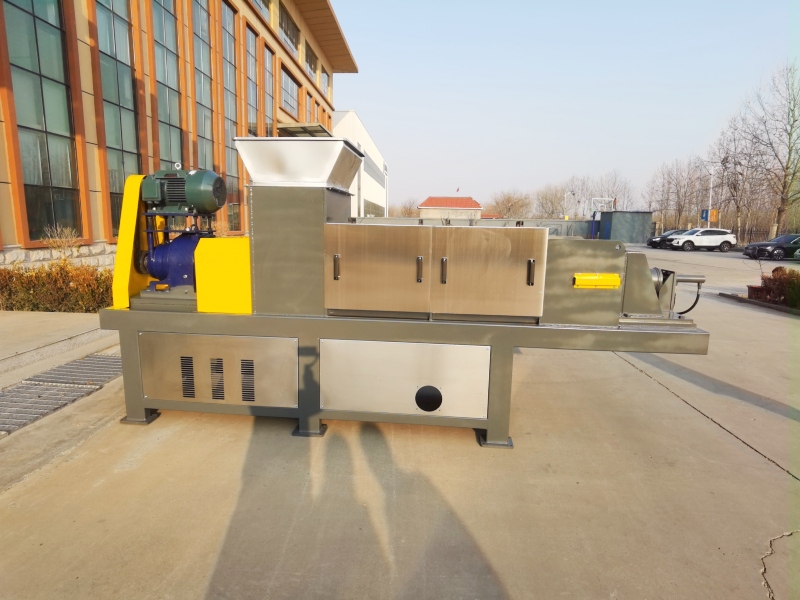
In the global pursuit of sustainable living, effective management of kitchen waste, particularly food waste, has become a paramount concern. With the increasing population and urbanization, finding innovative solutions to minimize the environmental impact of food waste has become imperative. One such innovative technology that is making waves in the field of waste management is the Kitchen Waste Food Dewater Machine. This article delves into the functionalities and benefits of this groundbreaking technology.
Functionality
The Kitchen Waste Food Dewater Machine is a state-of-the-art device designed to efficiently reduce the moisture content in kitchen waste, thereby significantly reducing its volume and weight. This machine employs advanced dewatering techniques to separate the water from the organic waste, resulting in a semi-dry residue that is much easier to handle and dispose of. By reducing the moisture content, the machine not only minimizes the foul odor associated with decomposing organic matter but also inhibits the growth of harmful bacteria and pathogens.
Key Features
Efficient Dewatering: The machine utilizes a powerful dewatering process to extract water from kitchen waste, leaving behind a reduced volume of semi-dry residue.
User-Friendly Operation: Designed with user convenience in mind, the machine features an intuitive interface, making it easy for operators to control and monitor the dewatering process.
Compact Design: Its space-saving design ensures that it can be easily integrated into existing waste management systems without occupying excessive space.
Low Energy Consumption: The Kitchen Waste Food Dewater Machine is engineered for energy efficiency, ensuring that it operates effectively while keeping energy costs low.
Benefits
Environmental Impact: By significantly reducing the volume of kitchen waste, this machine helps decrease the burden on landfills, leading to a reduced environmental footprint.
Odor Control: The dewatering process minimizes foul odors, creating a more pleasant environment in and around waste management facilities.
Pathogen Reduction: Lowering the moisture content inhibits the growth of harmful bacteria, making the residual waste safer to handle and transport.
Cost Efficiency: Waste management costs are substantially reduced due to decreased waste volume, lower transportation costs, and reduced landfill fees.
Resource Recovery: The semi-dry residue obtained after dewatering can be further processed into valuable resources such as organic fertilizers, biogas, or animal feed, promoting a circular economy.
Conclusion
The Kitchen Waste Food Dewater Machine stands at the forefront of innovative solutions for sustainable waste management. By efficiently reducing the volume and moisture content of kitchen waste, this technology not only addresses environmental concerns but also offers economic and resource recovery benefits. Embracing such advancements in waste management is essential for creating a more sustainable and eco-friendly future.




If your company wants to establish a business relationship with us, please briefly describe the cooperation intention and send an email to:chuantaiscrewpress@gmail.com























































































![[list:title]](/static/upload/image/20240528/1716877114510915.jpg)